While exploring the many temples, shrines, and tourists locales while you are in Japan, you should make visiting a 100 yen shop a priority. These shops, also known as Hyaku En Shops, are treasure troves of just about anything you could ever want to purchase while in Japan at an incredible bargain price.
A 100 yen shop is similar to a Western dollar store. These shops can offer a variety of items, from food to housewares, to office supplies, and much more.
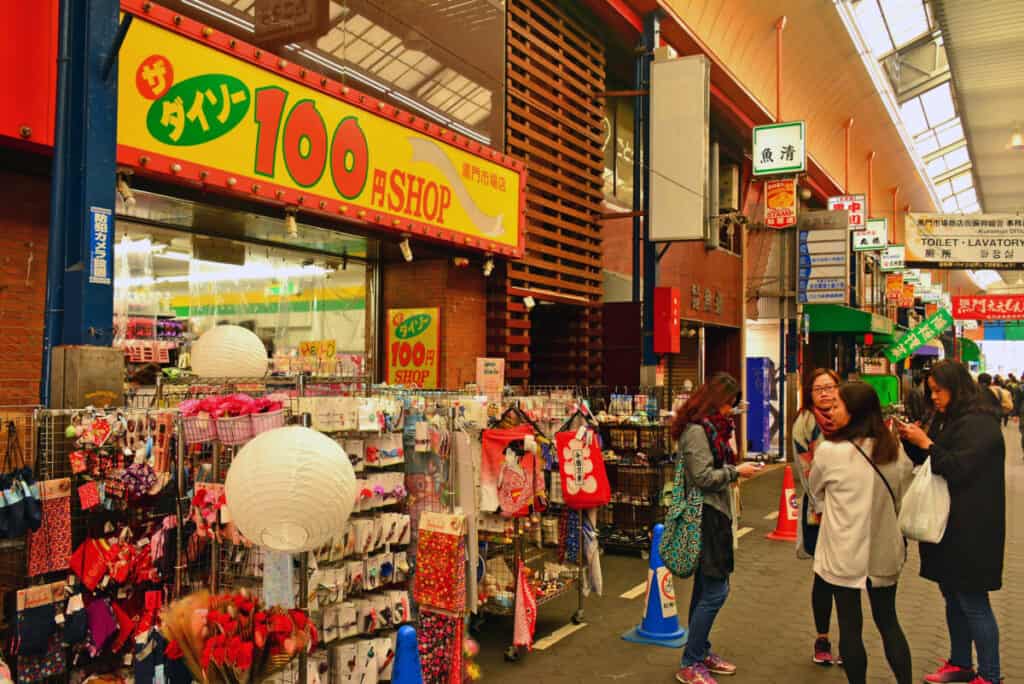
However, these shops have unique items never to be seen in their western counterparts, no matter what you might be shopping for when in Japan, a 100 yen shop is a must-see shopping destination.
The Origins Of 100 Yen Shops
While the concept has adapted to current times, the history of the discount store such as a 100 yen shop can be traced back to the Edo period of Japan.
There were shops back in that era that sold a variety of items at a very low price. As the Edo period transitioned into the Meiji period, the types of items found at these discount stores expanded.
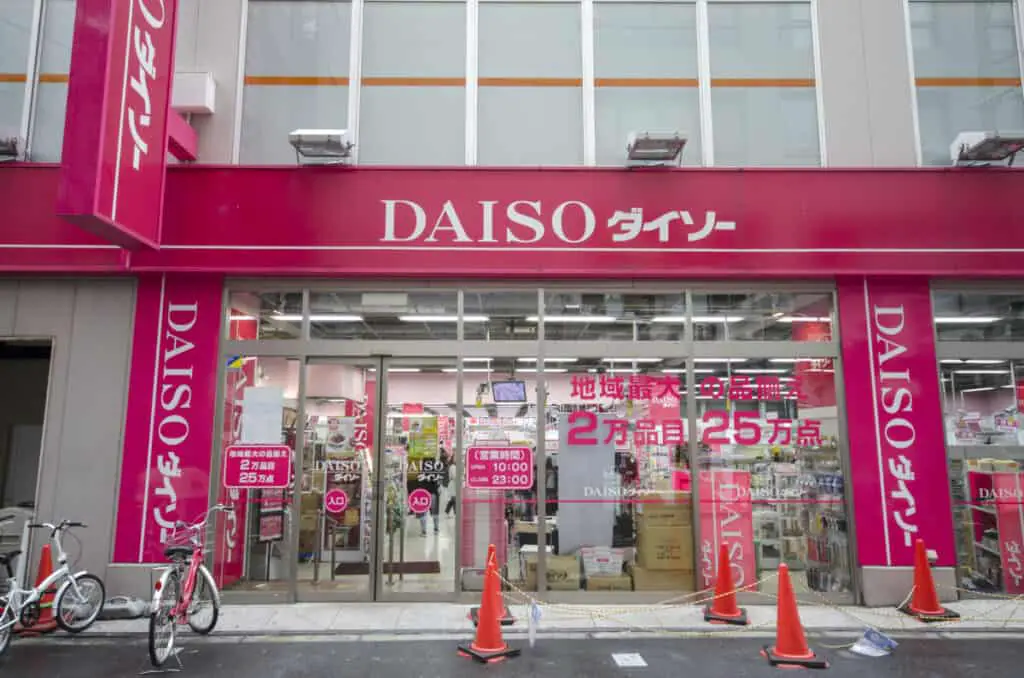
The first 100 yen shop that opened in Japan was called 100 Yen Shop. It was opened in 1985 by Akira Matsubayashi, who had founded a company called Life Standard. Daiso was inspired by this concept and they opened up their first store in 1991.
100 Yen Shop Chains
There are four major 100 yen shop chains that you are most likely to encounter, regardless of where you are visiting in Japan. These four chains are Can Do, Watts, Daiso, and Seria.
There are also some mid-sized chains that can be found all over Japan, including Flets, Daikoku, and Lawson konbini.
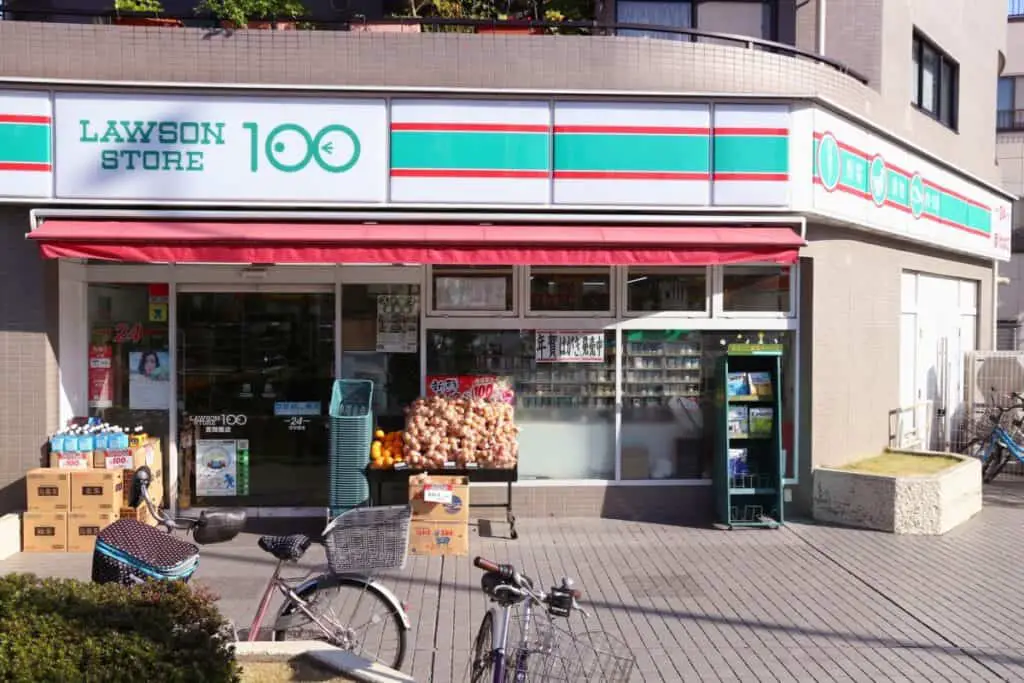
Many of these shops sell their own products under their brand name, and these items typically end up being some of the most inexpensive items you’ll find at these stores.
Items That Can Be Purchased At 100 Yen Shops
You will probably find just about any type of home goods items you can think of at a 100 yen shop. Items are typically found in large quantities arranged in aisles by category. Some of these shops even have multiple floors of items to explore.
There are a variety of types of food and snacks, as well as beverages, available in these shops. There are also multiple types of housewares, including kitchen utensils, home decor, trinkets, and so much more. You can even find tools and gardening supplies, as well as games and novelties.

There are also everyday household items that you might need in a pinch. For example, you can find umbrellas, clothing, cleaning supplies, and even hygiene items such as toothbrushes and soap.
These are great places to shop when trying to purchase items for a first home, as you can find anything you might need for dining, living, and entertaining.
Branded And Characters Items At 100 Yen Shops
You might think that you would only find off-brand items or knockoffs at 100 yen shops, as this is the case in many dollar stores, but it would be inaccurate. While there are store brands, there are also popular character items that’ll excite any fan of popular Japanese anime characters.
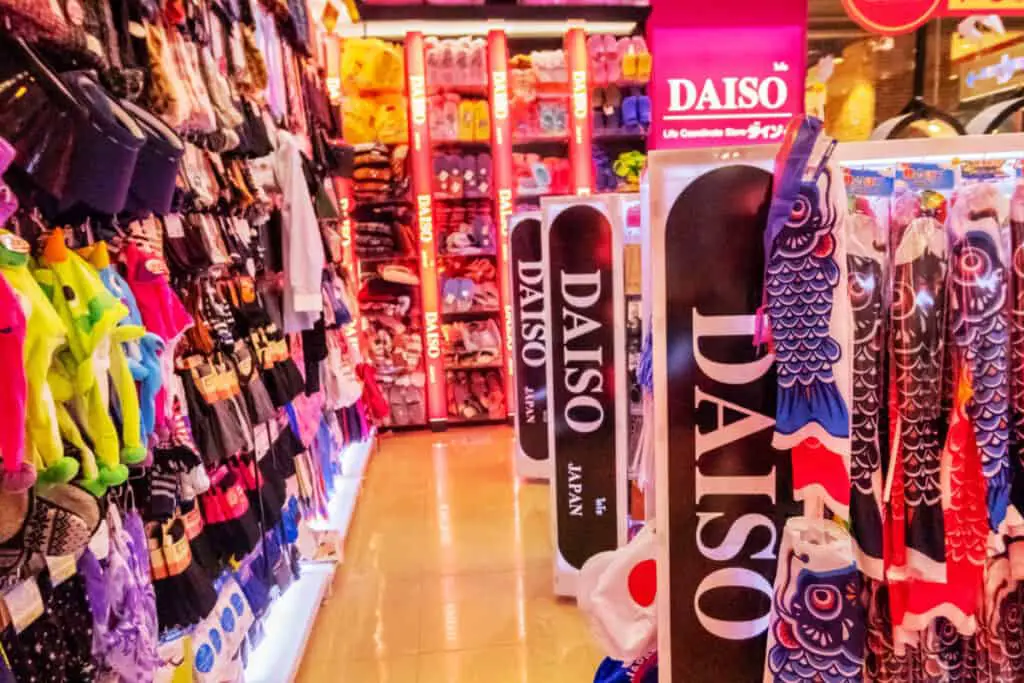
Some of these characters that appear on items at 100 yen shops include Hello Kitty, Gudetama, and Doraemon. These items may not be valuable collector’s items, but they are very fun to have if you collect particular character items from Japan or are a fan of a particular series or character.
Notable 100 Yen Shops To Seek Out
Tokyo is, of course, one of the most famous cities in the world, and is one many will visit first. At the Arcakit Mall, there is an Arcakit Kinshicho store on the seventh floor. There is also the Decks Tokyo Beach mall which features a 100 yen shop of the same name in Odaiba.
Some other 100 yen shops to take note of depending on where you travel to in Japan include;
- Celesta Higashikuyakushoeki-mae Store, located in the Celestia Shopping Center in Sapporo
- Nayoga Sakae Skyle Store, located in the Skyle mall in Nayoga
- Aeon Mall Kyoto Store, located in the Aeon Mall Kyoto in Kyoto
Sales Tax
You should expect to pay consumption taxes on items you purchase at 100 yen shops. This isn’t totally uncommon, as Western dollar stores will charge tax as well. Therefore, you can expect to pay just a little bit more than 100 yen for an item, but not by much.
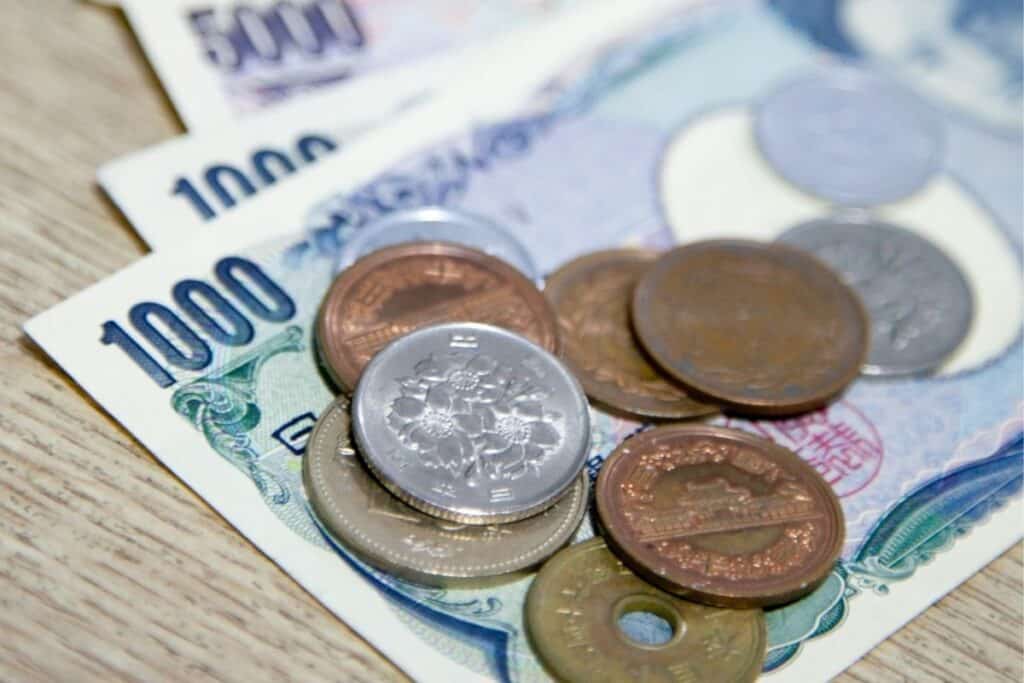
If you’re purchasing consumables at a 100 yen shop, you will be charged 8% tax. If you purchase other items, you will pay 10% tax.
Similar to other popular dollar store chains in other countries, you might find larger items at some of these stores that cost over 100 yen. However, these prices are still a bargain compared to some well-known stores.
The Quality Of Items At 100 Yen Shops
While it would be assumed that items that are sold so inexpensively would be cheap and of lower quality, this isn’t true of many of the items sold at 100 yen shops.
Some items may not last forever but that should be expected considering what you pay for them. However, many items are of much better quality than you might think.
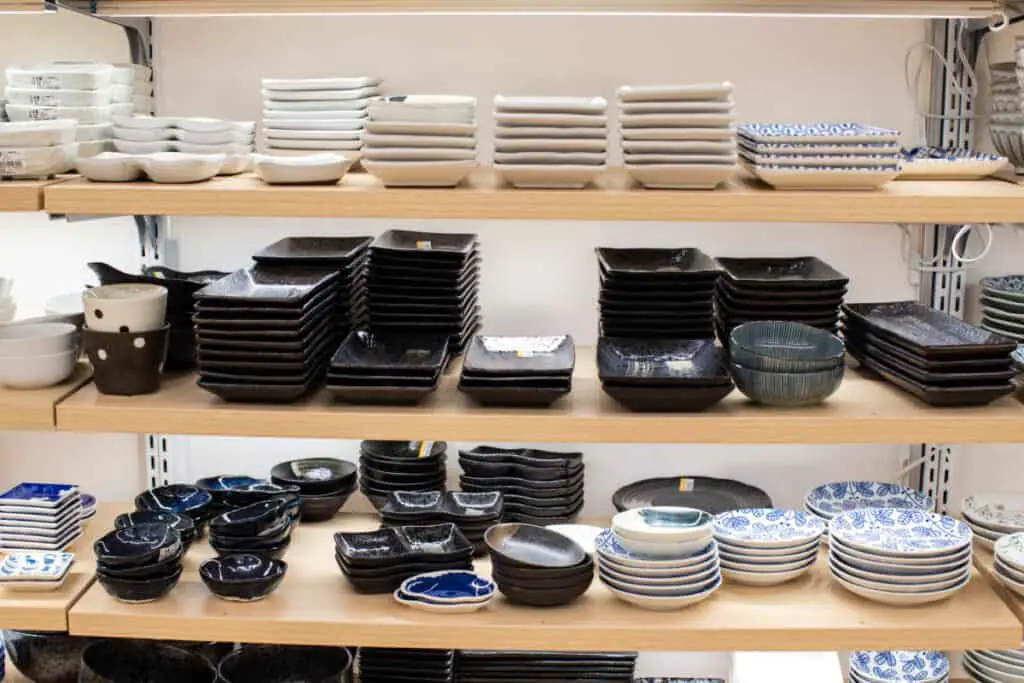
Retailers are able to keep their prices low because they seek out items in bulk. They also purchase from countries that produce these items at a lower cost, so they are able to purchase them for lower prices.
This is partially why 100 yen shops are so successful and are able to put the profit margins they have in place. Even though there is a lot of competition in terms of how many brands of 100 yen shops exist across Japan, they all offer something a little bit more unique than the other.
Finding Souvenirs At 100 Yen Shops
100 yen shops are the perfect places to visit when looking for some inexpensive but authentic souvenirs to bring home. They are also great places to find gifts to send home, as well as all the supplies necessary to send them all over the world. They can also sometimes carry unusual items that you cannot find anywhere else.
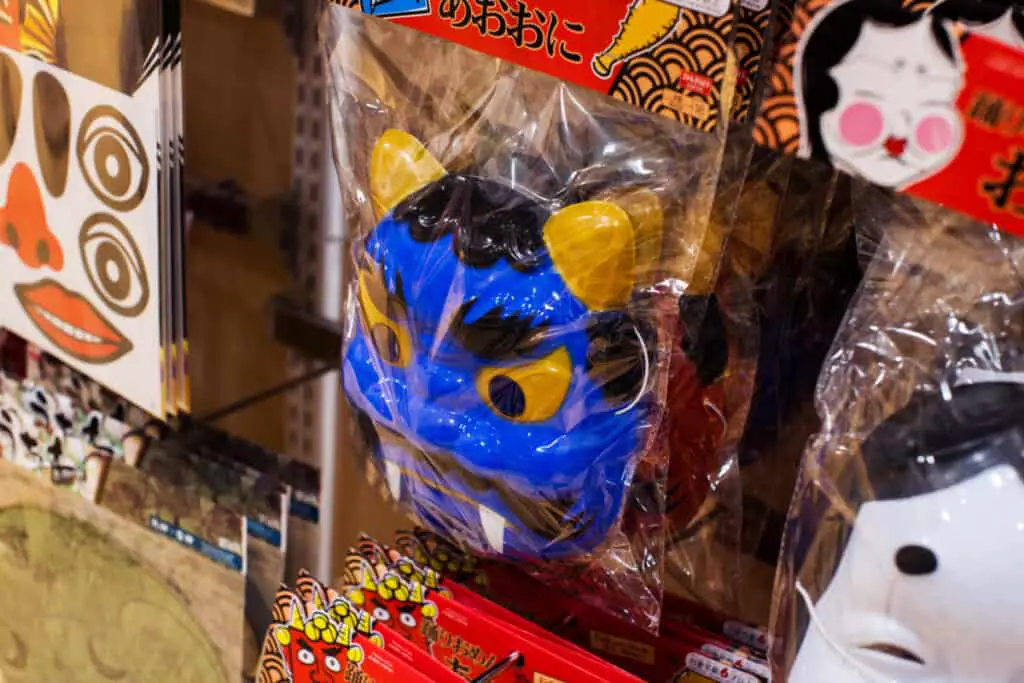
Each 100 yen shop will tailor the products they carry to the community they are situated in. Therefore, many of the items that you find will be a reflection of the culture of that region in Japan. There are also items that are representative of Japan as a whole.
Taking the time to peruse the aisles of 100 yen shops in the area or areas you’re visiting will give you a fascinating glimpse into the types of items typically shopped for in Japan, as well as items they hold as necessities and novelties alike.
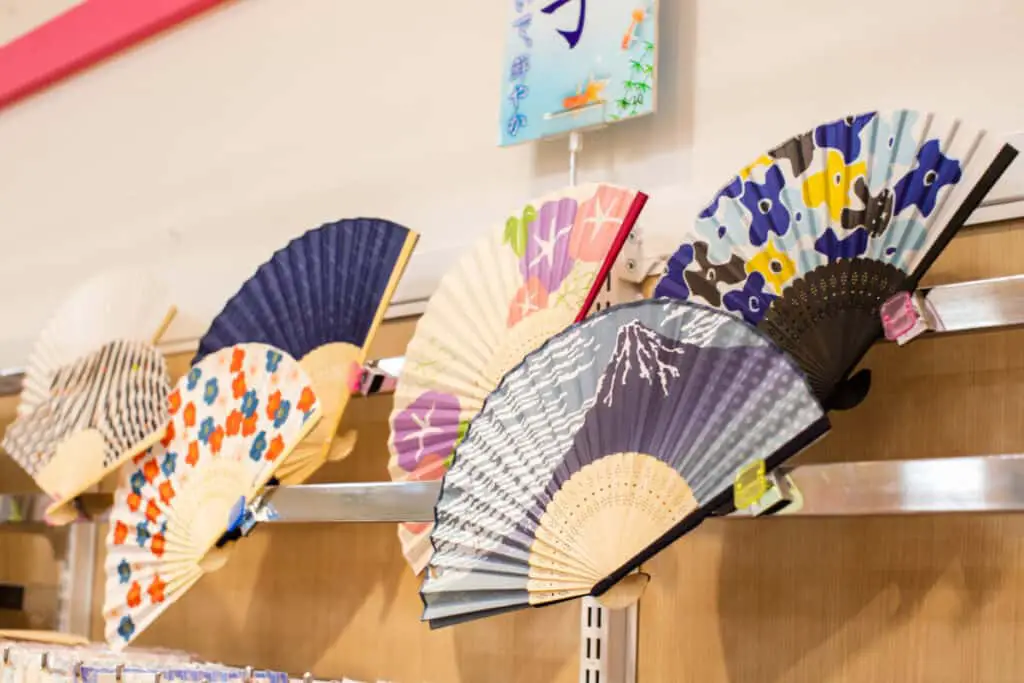
You can find items to take home to commemorate your trip, as well as items to bring home to your loved ones, all at affordable prices, but without sacrificing quality or significance.
Many of these items will be marked up significantly in the souvenir and specialty shops, making them much less affordable, especially if you want to purchase gifts for several people.
Are 100 Yen Shops Catered To Tourists?
100 yen shops are not just for tourists, they are common destinations for people living in Japan. This is due to the sheer amount of things that can be purchased at these shops, and for much better prices than other shops, supermarkets, or department stores.
When locals go shopping, they may stop by a 100 yen store before going to the supermarket, for example. Due to the variety of foods that can be found at 100 yen shops, from everyday essentials to candies and more, they are sometimes more of a bargain at 100 yen stores than the local grocery store.
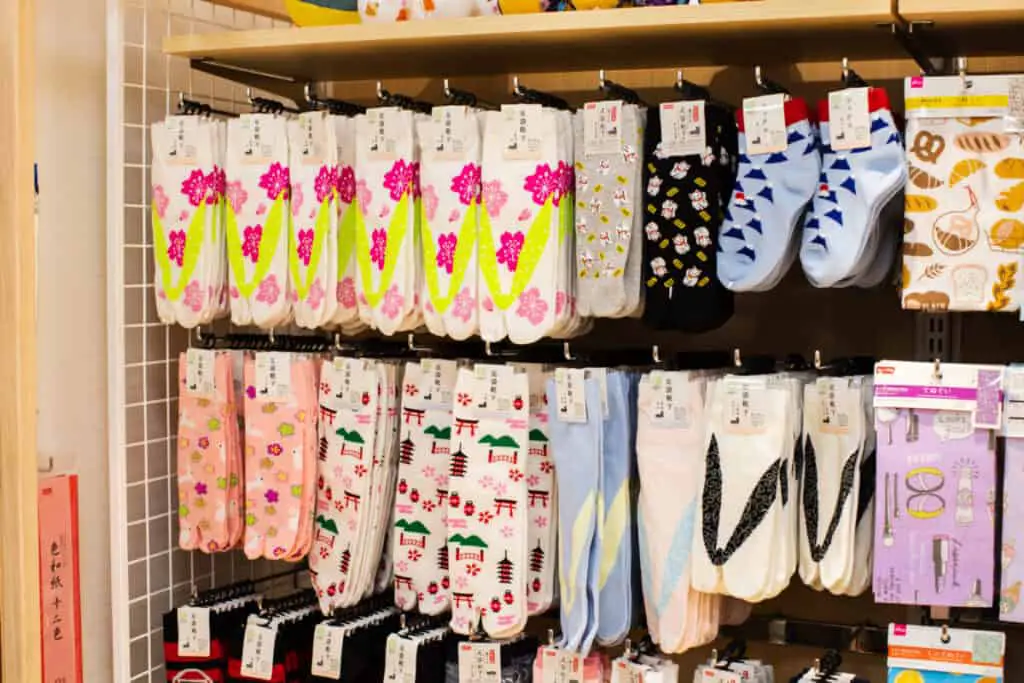
As previously mentioned, 100 yen stores will stock items based on what the people in the community need. So if there are a lot of kids in the area, for example, that 100 yen store will be sure to have toys, school supplies, and children’s clothing on hand.
With the sheer amount of 100 yen shops that exist, they can be found just about everywhere, not just in tourist destinations. Many of them can be found in malls and other shopping centers that will probably be frequented more by locals than tourists.










